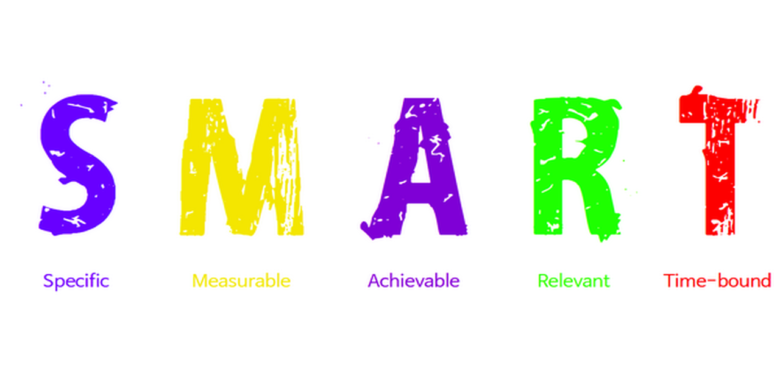1
If you’re interested in learning new ways to get your kids to behave well, then you’re already a smart parent – the internet can be a wonderful resource 🙂 So, what’s a SMART parent? It’s one who explains what behaviour they want from their kids in a very clear way:
This is unSMART…
Ready for bedtime?
and this is a SMART version of the same thing…
You must have been to the toilet, brushed your teeth and put all of your clothes in the laundry basket before I read your bedtime stories / in 5 minutes’
SelfishMother.com
2
time.
The unSMART version technically leaves the decision up to the child as it is asked as a question – although in reality there is only one answer! ”Time for bed” is similarly vague – it’s a statement, not an instruction. The SMART version is more instructional, impossible to misinterpret and makes you sound like an assertive parent 🙂
Making what it very clear to a child what you want them to do is actually helpful to them. They know exactly what you want, so you’re easier to please if they’re so inclined!
SelfishMother.com
3
It will also be very clear to you whether they are acting out or not. An older kid may try to manipulate your rules, following the letter of the law, but not what you really had in mind – so this method also will work for them. A direct instruction can not be misinterpreted, wilfully or otherwise!
Here’s how to do it:
Specific: What exactly do you want to happen? ”Tidy up” is open for interpretation as is ”help me…”.
Pick up your toys and put them in that box or please put your dirty cup by the sink are
SelfishMother.com
4
specific.
Measurable: Pick up your toys… is specific, but not measurable.
Pick up all of your toys… is clearer. Sometimes the measurable is simply that a job is completed to your satisfaction or it might be that you want a certain number of repetitions/ duration of something.
Achievable: Pick up all of your toys… is an appropriate expectation of my 4 and a half year old son. Asking the same of a just-turned-2 year old is a big ask.
Maybe Pick up 3
SelfishMother.com
5
of your toys… is more reasonable – and then you get the added bonus of helping them learn about counting as you add up what they’ve managed so far!
Asking my son to completely tidy all of his toys away in 2 minutes is also not reasonable or achievable. By all means, set a stretch goal but if there’s no chance of success, your older kid will not engage with you.
Relevant: Tidying away all of the toys in the middle of the day, when they’re likely to be emptied out again makes as much sense as asking
SelfishMother.com
6
your kid to brush their teeth before their dinner.
Time-bound: When do you expect the task to be completed by? A young child will need a more immediate end time than an older kid. My 4 and a half year old can manage a 10 minute limit, but would struggle to visualise how long an hour is.
Time-bound could be an actual duration of time, by the time X is finished or before you will do something that they want from you, for
SelfishMother.com
7
example.
Consequences?
Don’t forget, these can be positive or negative. I’ve written a whole post about consequences as a behaviour management tool.
If you kid meets the SMART target that you set for them, give them some positive reinforcement and say thank you!
If your kid does not meet the SMART target, give them one chance and then consider my reflective version of time out for a younger child. An older kid needs to feel a negative consequence of not doing as they were asked… their favourite t-shirt
SelfishMother.com
8
didn’t get washed because they didn’t put it in the laundry basket; you were so busy completing the task you asked them to do that now there’s no time for X. You can get creative with this 🙂
A Woman Less Ordinary lives, parents, purchases and thinks differently. With 10 years of teaching experience, she has many effective techniques for managing kids’ behaviour (and a lot to say about finance if you’re interested) BUT YOU DON’T HAVE TO DO ANY OF IT!
SelfishMother.com
This blog was originally posted on SelfishMother.com - why not sign up & share what's on your mind, too?
Why not write for Selfish Mother, too? You can for free and post immediately.
We regularly share posts on @SelfishMother Instagram and Facebook :)
A Woman Less Ordinary - 27 Feb 18
If you’re interested in learning new ways to get your kids to behave well, then you’re already a smart parent – the internet can be a wonderful resource 🙂 So, what’s a SMART parent? It’s one who explains what behaviour they want from their kids in a very clear way:

This is unSMART…
Ready for bedtime?
and this is a SMART version of the same thing…
You must have been to the toilet, brushed your teeth and put all of your clothes in the laundry basket before I read your bedtime stories / in 5 minutes’ time.
The unSMART version technically leaves the decision up to the child as it is asked as a question – although in reality there is only one answer! “Time for bed” is similarly vague – it’s a statement, not an instruction. The SMART version is more instructional, impossible to misinterpret and makes you sound like an assertive parent 🙂
Making what it very clear to a child what you want them to do is actually helpful to them. They know exactly what you want, so you’re easier to please if they’re so inclined! It will also be very clear to you whether they are acting out or not. An older kid may try to manipulate your rules, following the letter of the law, but not what you really had in mind – so this method also will work for them. A direct instruction can not be misinterpreted, wilfully or otherwise!
Here’s how to do it:

Specific: What exactly do you want to happen? “Tidy up” is open for interpretation as is “help me…”.
Pick up your toys and put them in that box or please put your dirty cup by the sink are specific.

Measurable: Pick up your toys… is specific, but not measurable.
Pick up all of your toys… is clearer. Sometimes the measurable is simply that a job is completed to your satisfaction or it might be that you want a certain number of repetitions/ duration of something.
 Achievable: Pick up all of your toys… is an appropriate expectation of my 4 and a half year old son. Asking the same of a just-turned-2 year old is a big ask.
Achievable: Pick up all of your toys… is an appropriate expectation of my 4 and a half year old son. Asking the same of a just-turned-2 year old is a big ask.
Maybe Pick up 3 of your toys… is more reasonable – and then you get the added bonus of helping them learn about counting as you add up what they’ve managed so far!
Asking my son to completely tidy all of his toys away in 2 minutes is also not reasonable or achievable. By all means, set a stretch goal but if there’s no chance of success, your older kid will not engage with you.

Relevant: Tidying away all of the toys in the middle of the day, when they’re likely to be emptied out again makes as much sense as asking your kid to brush their teeth before their dinner.

Time-bound: When do you expect the task to be completed by? A young child will need a more immediate end time than an older kid. My 4 and a half year old can manage a 10 minute limit, but would struggle to visualise how long an hour is.
Time-bound could be an actual duration of time, by the time X is finished or before you will do something that they want from you, for example.
Consequences?
Don’t forget, these can be positive or negative. I’ve written a whole post about consequences as a behaviour management tool.
If you kid meets the SMART target that you set for them, give them some positive reinforcement and say thank you!
If your kid does not meet the SMART target, give them one chance and then consider my reflective version of time out for a younger child. An older kid needs to feel a negative consequence of not doing as they were asked… their favourite t-shirt didn’t get washed because they didn’t put it in the laundry basket; you were so busy completing the task you asked them to do that now there’s no time for X. You can get creative with this 🙂
 A Woman Less Ordinary lives, parents, purchases and thinks differently. With 10 years of teaching experience, she has many effective techniques for managing kids’ behaviour (and a lot to say about finance if you’re interested) BUT YOU DON’T HAVE TO DO ANY OF IT!
A Woman Less Ordinary lives, parents, purchases and thinks differently. With 10 years of teaching experience, she has many effective techniques for managing kids’ behaviour (and a lot to say about finance if you’re interested) BUT YOU DON’T HAVE TO DO ANY OF IT!
Did you enjoy this post? If so please support the writer: like, share and comment!
Why not , too? You can share posts & events immediately. It's free!
A Woman Less Ordinary lives, parents, purchases and thinks differently. With 10 years of teaching experience, she has many effective techniques for managing kids’ behaviour (and a lot to say about finance if you’re interested) BUT YOU DON’T HAVE TO DO ANY OF IT!
LIST







 Achievable: Pick up all of your toys… is an appropriate expectation of my 4 and a half year old son. Asking the same of a just-turned-2 year old is a big ask.
Achievable: Pick up all of your toys… is an appropriate expectation of my 4 and a half year old son. Asking the same of a just-turned-2 year old is a big ask.

















